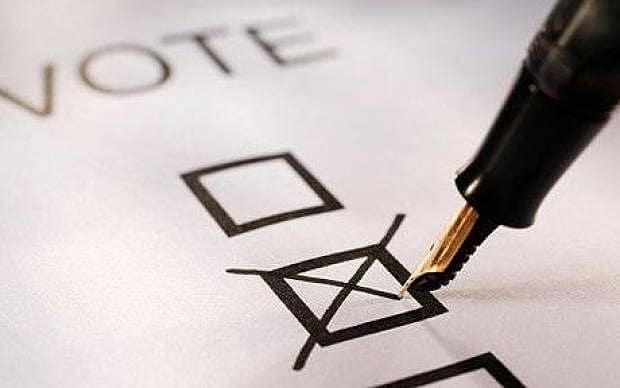4 ways to become more politically involved
With the midterm elections a year minus one day away, and many local elections taking place today, political campaigns are starting to gear up. This means no more candidate forum prep or making fancy websites, this is the real deal.
Campaigns are bringing out the parade supply boxes, full of wrinkly t-shirts and signs of all sizes. They are wiring phone after phone for volunteers to phone bank with, and printing sheet after sheet of “turf” for door knocking.
In preparation for the primaries and ultimately the general election, campaigns are always in desperate need of volunteers. Here are a few examples of different volunteer options within a campaign.
- Parades
You may not realize it, but there are a lot more parades than you think happening in your area. If you sign up for the volunteer emails of a certain campaign, be prepared to receive a weekly email on parades alone.
Parades are almost a visible projection poll of the race, the more people the campaign has walking equals the more support the campaign has. Although not foolproof, it is a good way to visualize the support a candidate has in the area.
Walking in parades is one of the easiest ways to help a campaign grow, all it involves is (usually) wearing a campaign shirt and holding a sign with the candidate’s name.
- Phone Banking
Personally, I think phone banking is one of the most fun ways to volunteer because as you continue to call people you learn more and more about the candidate and their stances on certain issues.
Most campaigns today make phone banking painless and efficient – words not usually used to describe campaigns. They will either use a program such as HubDialer, an automated calling service that connects you with a person who answered the phone, or you will have to directly call each number. Many programs also give you a survey to fill out after each call, regarding voting availability and preference of certain candidate.
Phone banking will also give the most useful information to the campaign, such as constituent opinions, candidate liking, and much more.
- Canvassing
Especially in Minnesota, the weather is unpredictable to say the least. Thus, canvassing, or door knocking, is also a little bit unpredictable, so be aware.
In most cases, door knocking is one of the most effective ways to campaign. With door knocking, there is a 10% chance of changing the opinion of someone because of the face to face interaction. This is followed by phone banking at 4%, and everything else below 1%.
Canvassing is also very simple, all you need to do is follow which houses to go to and the outcomes, which will be entered in a computer later. Most of the time, people won’t answer, that’s reality. In that case, you put an information packet in the door. Never the mailbox, not only is it illegal, it is a federal offense!
The most important lesson I learned about canvassing was when you are talking to someone, use your eyes. If you see kids, talk about education and the school system. If you see an old person, talk about Medicare. These people will be more inclined to listen to what you are saying and think about considering the candidate.
- Data Entry
The most dreaded part of a campaign, data entry. After the door knockers come back from a long day of ringing door bells, the data they collect must be entered into the computer.
Although not necessarily impossible to use the data papers themselves, data entry speeds up the process of utilization and implementation for the campaign.
Most volunteers for data entry want something quick and easy to learn, without having to talk to someone on the phone or at the door. This means that data entry shifts are usually shorter than other volunteer positions, which can be a plus at some points.
–
Overall, volunteering for a campaign in your area is a great way to get involved in the community and try to enact change with someone you believe in.
Starting is undeniably the hardest part, you have to find a campaign that you agree with. Don’t do a simple google search and pick the candidate with the best website, dig deeper. What does this person believe in, what would they change if elected, how will their ideas affect me?
After you find a candidate, email them! Call them! Campaigns are always happy to have volunteers. Most likely, they will add you to a volunteer list and send out a weekly email on upcoming opportunities.


